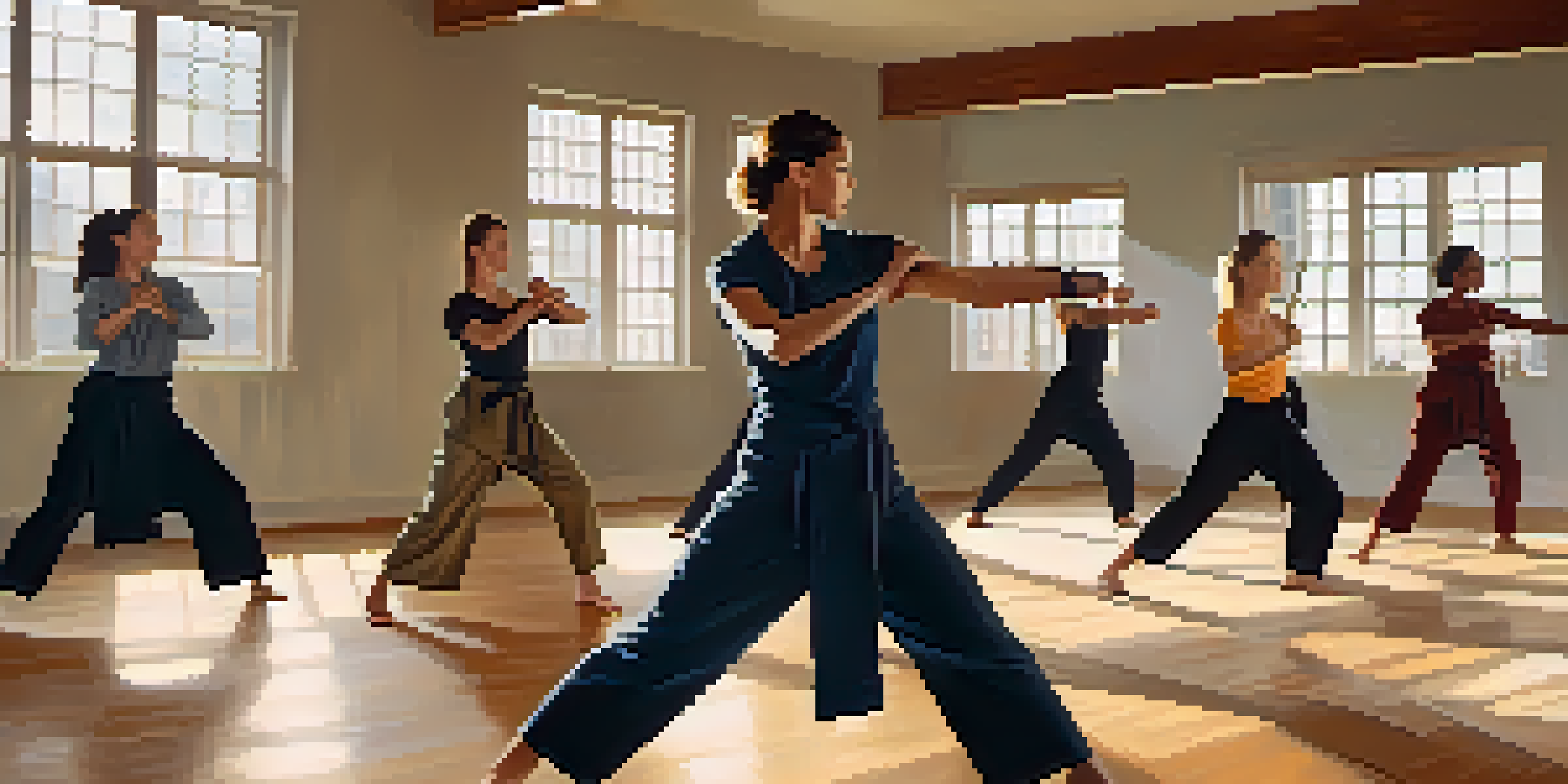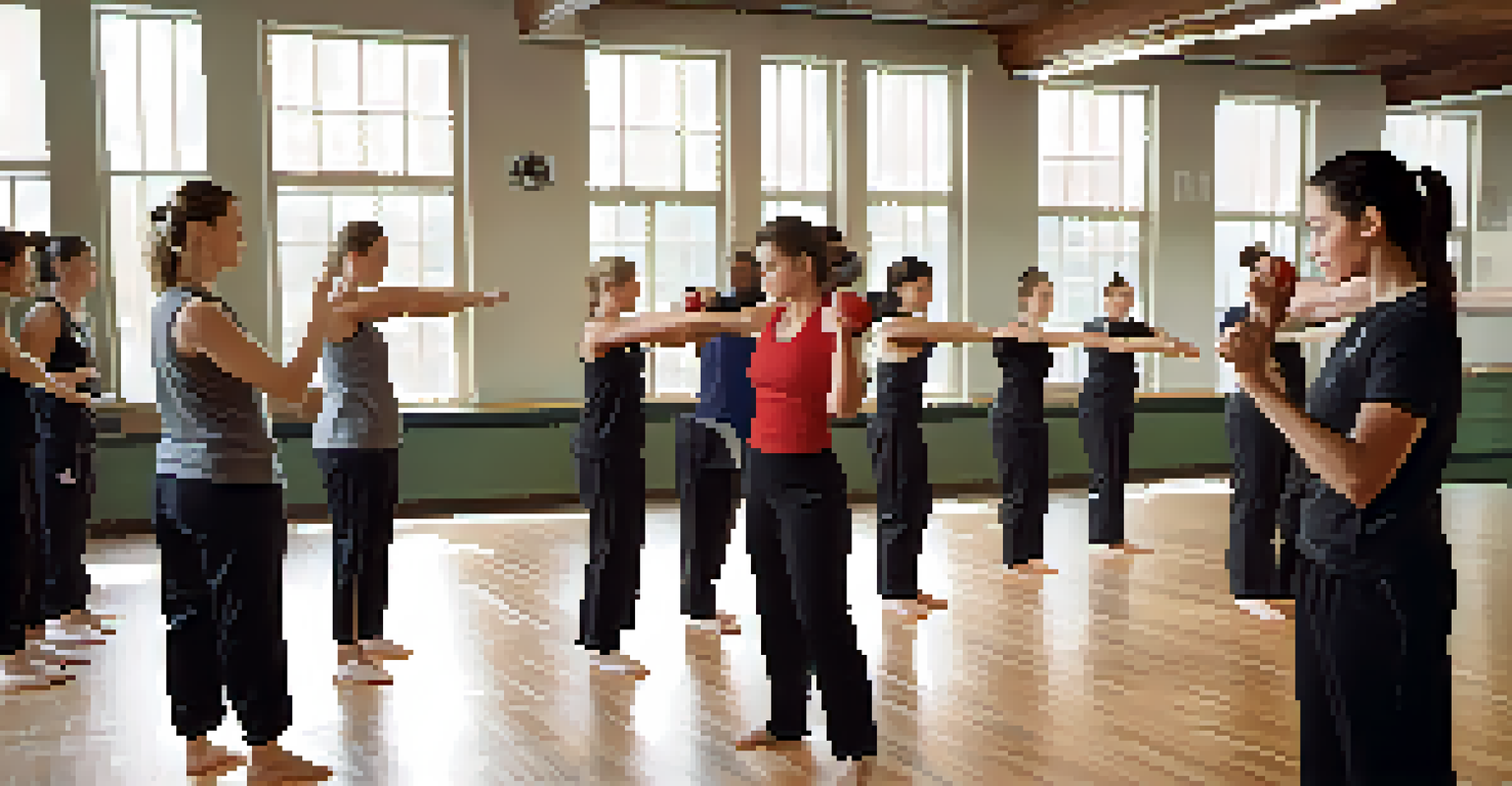Self Defense Techniques for Women: Stay Safe and Confident

Understanding the Importance of Self Defense for Women
Self-defense is not just about physical strength; it's about empowerment. For women, learning self-defense techniques can boost confidence and provide a sense of security in everyday situations.
The best defense is a good offense.
In a world where personal safety can feel compromised, knowing how to defend yourself can be a game-changer. It equips women with the skills needed to handle potential threats and enhances awareness of their surroundings.
Moreover, self-defense training fosters a community of support among women, creating bonds as they learn together. This collective experience can transform fear into confidence and resilience.
Basic Self Defense Techniques Everyone Should Know
Before diving into complex techniques, it's essential to master a few basics. Simple moves, like the palm strike or knee strike, can effectively incapacitate an attacker, giving you a chance to escape.

Additionally, learning how to break free from holds or grips can be vital. Techniques such as wrist breaks or shoulder escapes can turn the tide in a dangerous situation.
Self-Defense Empowers Women
Learning self-defense techniques boosts women's confidence and provides a sense of security in everyday situations.
Remember, the goal of self-defense is not to fight but to create an opportunity to get away safely. Practicing these basic techniques can significantly increase your chances of staying safe.
Situational Awareness: Your First Line of Defense
Situational awareness is like your personal radar, helping you to notice potential threats before they escalate. By being mindful of your surroundings, you can avoid risky situations altogether.
Self-defense is not just a skill; it’s a mindset.
For instance, when walking alone, stay alert and avoid distractions, such as your phone. Make it a habit to scan your environment and identify any unusual behavior or individuals.
Trust your instincts; if something feels off, it probably is. Developing this awareness can act as a powerful deterrent against potential attackers.
Verbal Self Defense: Using Your Words Wisely
While physical techniques are essential, verbal self-defense can be just as crucial. The ability to assertively communicate can deter potential threats before they escalate.
Practicing phrases like 'Back off!' or 'Leave me alone!' can help you project confidence when under duress. A strong voice can surprise an attacker and give you the upper hand.
Situational Awareness Matters
Being aware of your surroundings acts as a personal radar to help avoid potential threats before they escalate.
Additionally, using your words to create a scene or draw attention can be a powerful strategy. Shouting for help can attract bystanders who might intervene.
The Role of Self Defense Classes in Building Skills
Taking a self-defense class is one of the best ways to learn and practice techniques in a safe environment. Classes often cover a variety of scenarios and provide hands-on training.
Moreover, self-defense instructors can tailor their teachings to the specific needs of women, making the lessons relatable and practical. This targeted approach creates a comfortable learning atmosphere.
Beyond the practical skills, classes also foster a sense of camaraderie among participants, often leading to lasting friendships and support networks.
Self Defense Tools: What to Carry for Extra Safety
In addition to physical techniques, having self-defense tools can provide an extra layer of safety. Items like pepper spray, personal alarms, or tactical flashlights are practical options for everyday carry.
While these tools can be helpful, it's crucial to know how to use them effectively. Many self-defense classes also cover the proper use of these tools, ensuring you're prepared if the need arises.
Confidence Grows Through Training
Self-defense training not only equips women with practical skills but also significantly enhances their confidence in various aspects of life.
Remember, these tools should complement your self-defense skills, not replace them. The best safety strategy combines both awareness and preparedness.
Building Confidence Through Self Defense Training
One of the most significant benefits of self-defense training is the boost in confidence it provides. As you learn and practice techniques, you'll feel more empowered to handle unexpected situations.
Confidence can change how you move through the world—making you more aware and assertive. This newfound assurance can even impact other areas of your life, from social interactions to career opportunities.

As you progress in your training, celebrate your achievements, however small. Each step forward is a victory that reinforces your ability to protect yourself.
Empowering Others: Sharing Your Self Defense Knowledge
Once you feel confident in your self-defense skills, consider sharing your knowledge with others. Teaching friends or family can reinforce your own skills while empowering those around you.
Organizing workshops or informal training sessions can create a supportive community focused on safety and confidence. This shared experience enhances learning and fosters stronger bonds.
By sharing what you've learned, you not only help others stay safe but also contribute to a culture of empowerment and resilience among women.